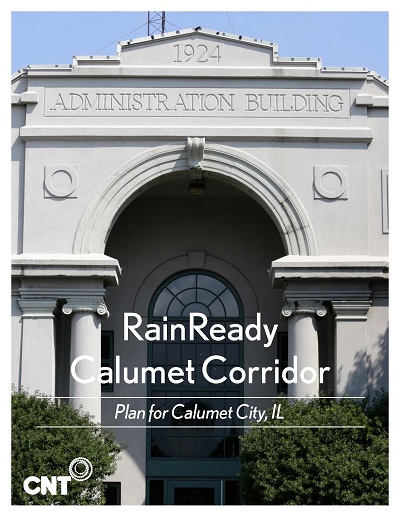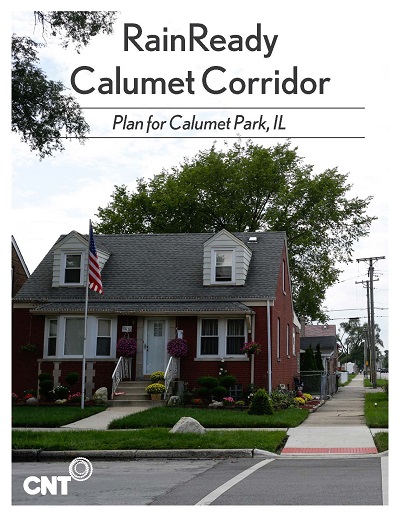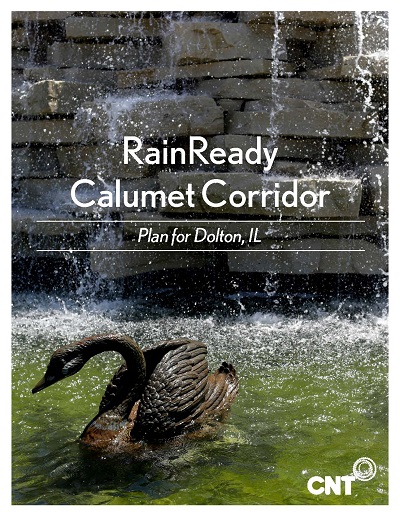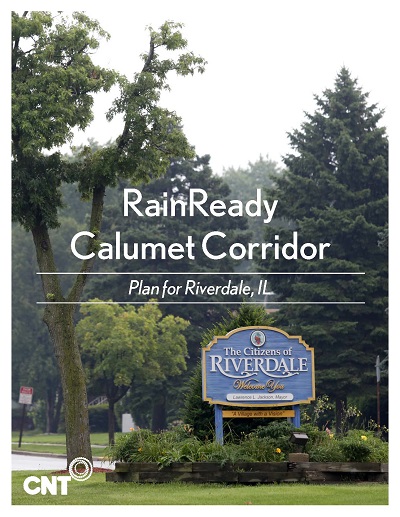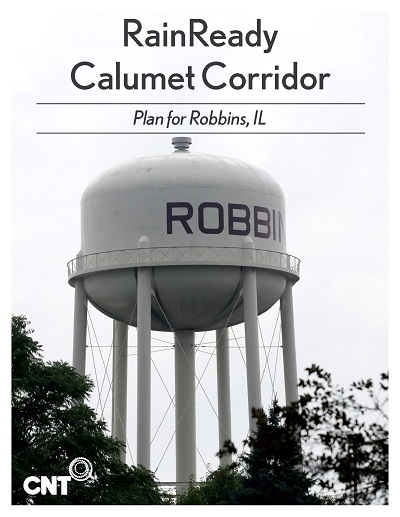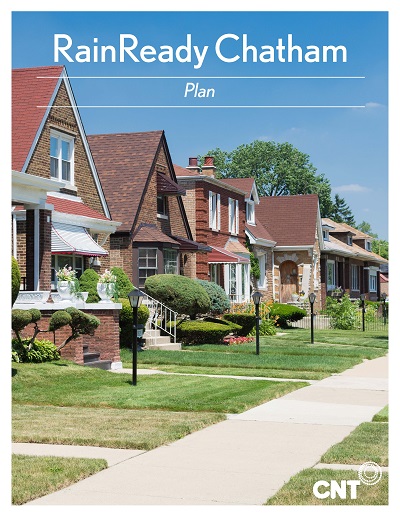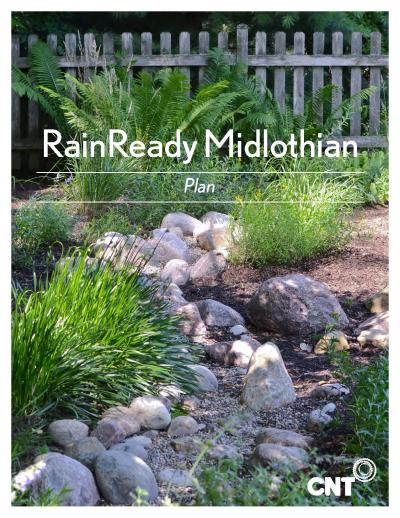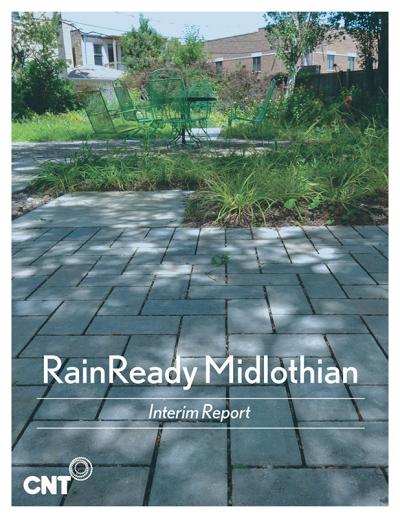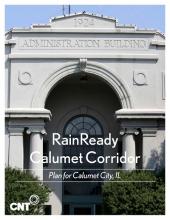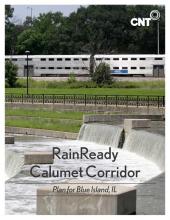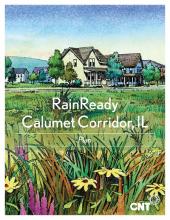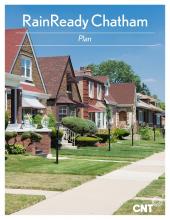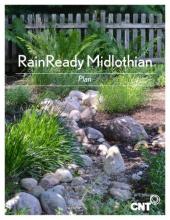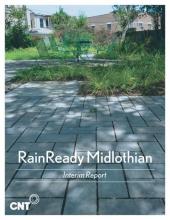The RainReady Calumet Corridor Plan represents the collective vision of over 2,100 residents, business owners, and municipal staff, elected representatives, regional leaders, and non-governmental organizations that all share interest in strengthening the homes, neighborhoods, communities throughout the Calumet Corridor in...Read more
Our Work
Topic: Water
Displaying 41 - 50 of 70Publication
topics: Climate, Green Stormwater Infrastructure, Sustainable Economic Development, Urban Flooding, Water
The RainReady Calumet Corridor Plan represents the collective vision of over 2,100 residents, business owners, and municipal staff, elected representatives, regional leaders, and non-governmental organizations that all share interest in strengthening the homes, neighborhoods, communities throughout...
Publication
topics: Climate, Green Stormwater Infrastructure, Sustainable Economic Development, Urban Flooding, Water
The RainReady Calumet Corridor Plan represents the collective vision of over 2,100 residents, business owners, and municipal staff, elected representatives, regional leaders, and non-governmental organizations that all share interest in strengthening the homes, neighborhoods, communities throughout...
Publication
topics: Climate, Green Stormwater Infrastructure, Urban Flooding, Water
The RainReady Calumet Corridor Plan represents the collective vision of over 2,100 residents, business owners, and municipal staff, elected representatives, regional leaders, and non-governmental organizations that all share interest in strengthening the homes, neighborhoods, communities throughout...
Publication
topics: Climate, Green Stormwater Infrastructure, Sustainable Economic Development, Urban Flooding, Water
The scope and severity of flood risk and flood-related damages in the Chatham community are among the worst in Cook County, Illinois. In September 2013, CNT began its Chatham program outreach through the RainReady initiative. This document is a product of this initiative, in partnership with...
Publication
topics: Green Stormwater Infrastructure, Urban Flooding, Water
What would a RainReady Midlothian look like? It would be a community where residents and businesses benefit from flood relief in a way that also brings neighborhood beautification, retail activity, jobs, recreation, and habitat conservation. In order to better understand Midlothian’s flood risk,...
Publication
topics: Green Stormwater Infrastructure, Urban Flooding, Water
Since September 2014, CNT and the U.S. Army Corps of Engineers (USACE) have been working closely with the Village of Midlothian and a variety of community and agency partners to assess the cause and characteristics of chronic urban flooding in Midlothian, a southwest suburb of Chicago. Data has...
Project
topics: Climate, Green Stormwater Infrastructure, Housing, Sustainable Economic Development, Transportation, Water
Working with prime contractor Duany Plater-Zyberk, we developed an EcoDistrict plan for financing and building infrastructure to support transit zones throughout the city for the Reinvent Phoenix project.
Project
topics: Climate, Green Stormwater Infrastructure, Urban Flooding, Water
Green infrastructure is a network of decentralized stormwater management practices, such as green roofs, trees, rain gardens and permeable pavement, that can capture and infiltrate rain where it falls, reducing stormwater runoff and improving the health of surrounding waterways.
Project
topics: Water
Every single day, more than six billion gallons of expensive, treated water is simply lost. Why? Crumbling infrastructure. Leaky, aging pipes and outdated systems are wasting roughly 14 percent of America’s daily water consumption.
Project
topics: Climate, Green Stormwater Infrastructure, Housing, Sustainable Economic Development, Transportation, Water
EcoDistricts are the cutting edge of sustainability solutions that use a district scale to achieve greater impact. They link energy, transportation, water, and land use in an integrated, efficient resource system.



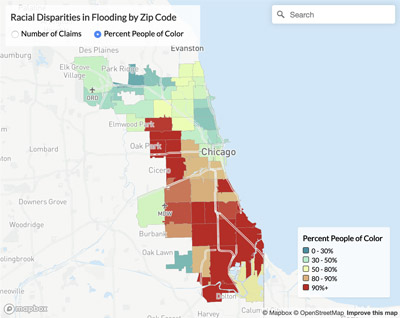
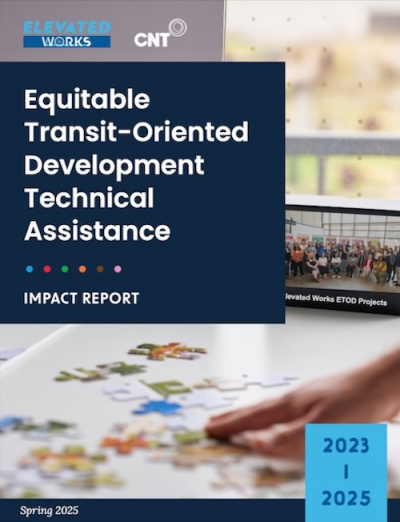
 Strengthening Transit Through Community Partnerships
Strengthening Transit Through Community Partnerships